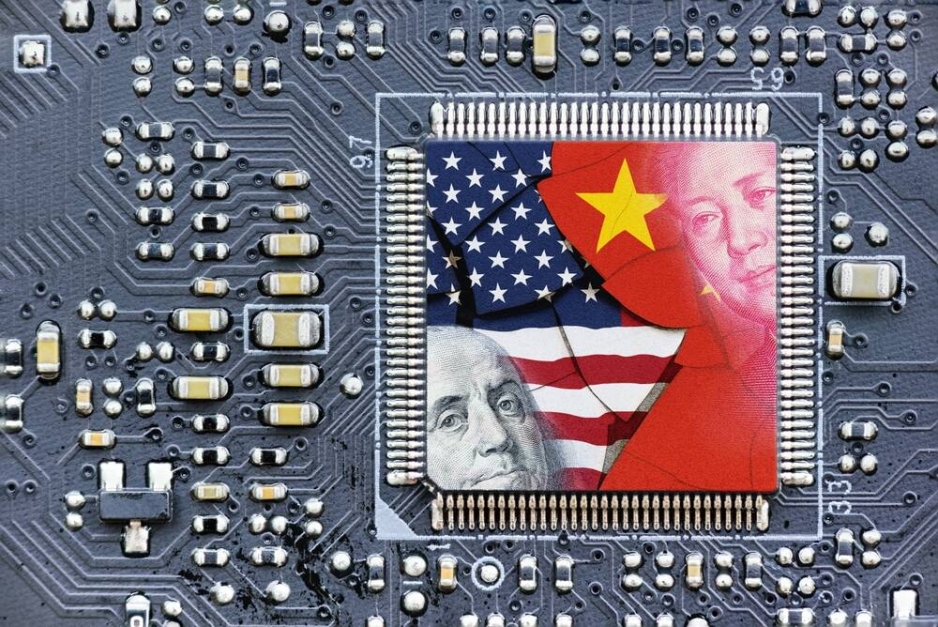The Biden administration is reportedly weighing new limits in the ongoing US-China trade war, which would ban high-end AI accelerators to adversary nations and impose restrictions on AI models for others.
Citing anonymous sources, Bloomberg reports the new rules, which could come as early as Friday — 10 days before president-elect Donald Trump returns to the white house — would categorize nations into three progressively more restrictive tiers.
Unsurprisingly, the last and most restrictive of these tiers is aimed at China, Russia, and other nations subject to US export embargoes, and is said to seek an outright ban on exports of AI hardware.
By comparison, the first and least restrictive of these tiers would be allowed unfettered import of American designed AI chips by companies located in the US and 18 other close allies, including Germany, Japan, the Netherlands, South Korea, and Taiwan, according to the report.
The second tier, meanwhile, would establish import limits on the volume of compute power the rest of the world is able to maintain, effectively establishing the US as the global gatekeeper for AI development.
These limits include caps on computing power available to any one nation reportedly equivalent to 50,000 GPUs over a two year period between 2025 and 2027.
However, the severity of these limits on “tier-2” nations depends on whether or not governments are willing to abide by US trade policy. Tier-2 nations that agree to Uncle Sam’s national security and human rights policies would be granted higher import caps.
Along with compute caps on tier-2 nations, the rules may also include limits on the export of closed AI model weights. Model weights represent the numerical values that dictate how modern AI models function.
Under the proposed rules, the Commerce Department aims to prevent companies from hosting closed model weights in tier-3 countries like China and Russia. Such a move would prevent major closed-source models from being served from these nations.
Open models, like Meta’s Llama 3.1 405B, would not be subject to these rules, nor would any closed model deemed less sophisticated than an existing open model.
Along with controlling who can acquire the arms of the AI revolution, the rules would also establish limits on where nations can deploy their allocation. Under the rules, American companies would be required to keep at least half of their total computing power within US borders.
Similarly, while tier-1 nations would be free to deploy as many GPUs and accelerators as they like within their own borders, they would need permission from the US to deploy them elsewhere with no more than 25 percent being deployed outside tier 1 nations and a 7 percent cap on deployments on any one tier 2 nation.
- Trump China tariffs to ‘overshadow’ the ‘progress’ of AI PCs
- Chinese RISC-V project teases 2025 debut of freely licensed advanced chip design
- Taiwan reportedly claims China-linked ship damaged one of its submarine cables
- Trump administration wants to go on cyber offensive against China
The reported trade rules reflect an increasingly hawkish stance by the US to derail Chinese AI and semiconductor developments. Over the past few years, the US has enacted ever stricter performance caps on AI accelerators and restricted access to critical components and semiconductor manufacturing equipment and facilities. Most recently, the administration moved to curb sales of high-bandwidth memory, a key component in high-end AI accelerators, to China.
Whether or not the Biden administration’s latest salvo of the trade war will move forward with the alleged plans remains to be seen. It’s also unclear whether they would persist under a second Trump administration.
In any case, major AI equipment suppliers, like Nvidia, aren’t thrilled with the move.
“Every datacenter is being accelerated, and every business and application is incorporating mainstream AI. The worldwide interest in accelerated computing for everyday applications is a tremendous opportunity for the US to cultivate, promoting the economy and adding U.S. jobs,” the chip maker said in a statement provided to Reg. “A last-minute rule restricting exports to most of the world would be a major shift in policy that would not reduce the risk of misuse but would threaten economic growth and U.S. leadership.”
Nvidia, by far the largest supplier of GPUs used in large-scale AI systems, is no stranger to export controls. Over the past few years, the chip designer has developed several China-specific SKUs to keep its products in compliance with US law. At the same time, the company has sought to expand its influence to new regions, peddling the importance of sovereign AI.
The latest export controls, if implemented, could effectively hinder not only Nvidia’s ability to do business in these emerging markets, but rivals Intel, AMD, Cerebras, among others. (r)
